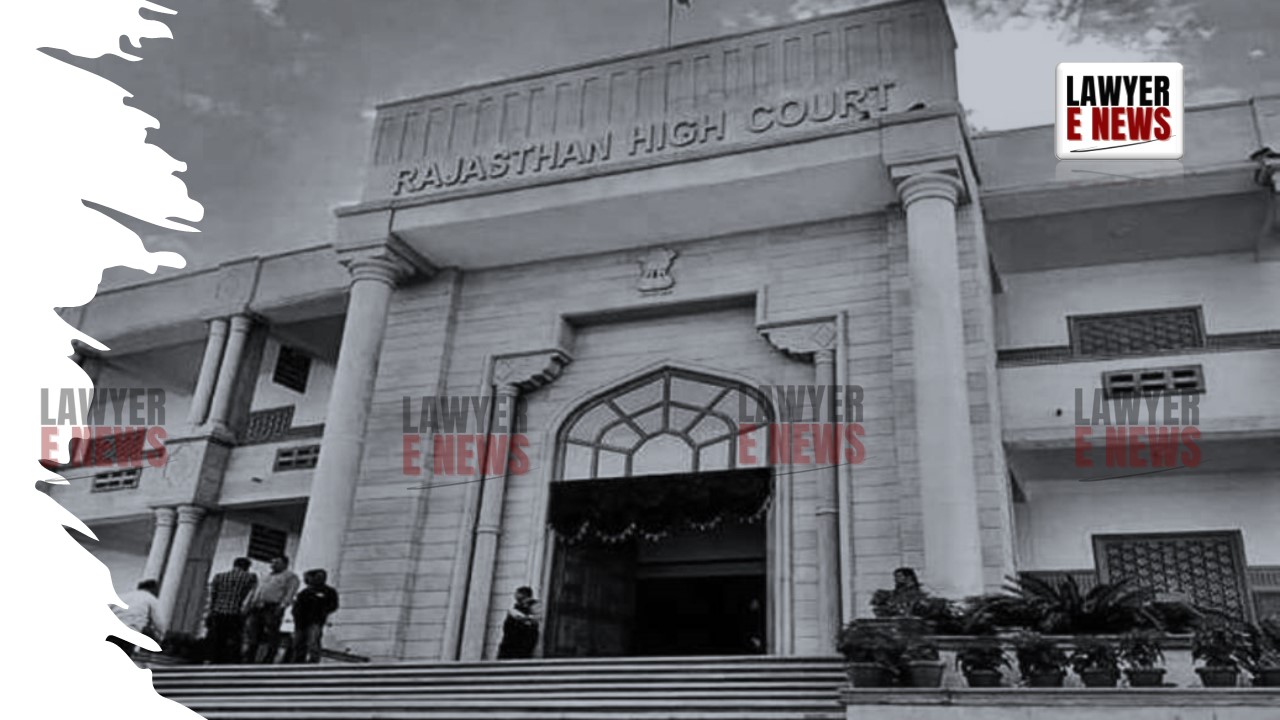Safety Shoes Used as Weapon Meets Mens Rea Requirement for Murder: Rajasthan HC on Bail Denial
23 September 2024 9:29 AM
By: Sayum
Rajasthan High Court, presided by Justice Rajendra Prakash Soni, delivered a crucial ruling in the case of Vikas S/o Samji vs. State of Rajasthan in Criminal Misc. Bail Application No. 8363/2024. The petitioner, accused of murder under Section 302 of the IPC, sought regular bail under Section 439 CrPC. The court denied the bail, emphasizing that the use of safety shoes as a weapon indicated intent to cause grievous harm or death, fulfilling the necessary mens rea for a murder charge.
The case originated from an incident during a wedding in Banswara, Rajasthan, where the petitioner, Vikas, allegedly kicked the deceased, Hiralal, in the stomach and private parts while wearing safety shoes. The altercation began when the deceased objected to the petitioner touching his daughter during the dance program. Hiralal later complained of being unable to pass urine and died two days after the incident. The petitioner was subsequently charged with murder under Section 302 IPC.
The petitioner argued that the death was not caused by the kicks, citing a postmortem report that attributed the cause of death to "septicemic shock" due to surgical wounds. The defense claimed that there were no external injuries directly caused by the alleged assault.
Use of Safety Shoes as a Weapon: The court extensively analyzed the nature of the alleged assault, particularly the use of safety shoes, which are reinforced with hard materials designed to protect against heavy impacts. The court noted that using such shoes to kick the deceased in vital areas like the stomach and private parts could result in severe internal injuries.
The court stated, “Safety shoes, when used as a weapon, can significantly increase the potential for inflicting serious or fatal injuries... The petitioner’s act of kicking the victim with safety shoes prima facie meets the ingredients of murder.” [Para 7-10]
Causation and Mens Rea: The petitioner argued that the cause of death was septicemic shock from surgical complications, not from the injuries inflicted. However, the court held that the internal injuries caused by the kicks were likely contributors to the death. The court emphasized that the act of kicking a person in the stomach and private parts with safety shoes demonstrated intent to cause serious harm or death, fulfilling the mens rea requirement for a murder charge under Section 302 IPC.
The court remarked, “Petitioner has prima facie intended to cause death or serious bodily harm by kicking the victim with safety shoes... This act of petitioner prima facie meets the ingredients of murder.” [Para 10]
Pending Evidence and Eyewitness Testimonies: The court also noted that several crucial eyewitness testimonies, including those of Mangi and Maku Ninama, were still pending in the trial. This, coupled with the gravity of the allegations and the seriousness of the crime, led the court to deny the bail application at this stage.
“The trial is ongoing, and key evidence, including witness statements, is still pending. It is not appropriate to grant bail at this juncture.” [Para 11]
The court concluded that based on the material available and the seriousness of the allegations, the petitioner was not entitled to bail. The court reiterated that the use of safety shoes as a weapon could cause fatal injuries, and the petitioner’s actions demonstrated an intent to cause serious harm, thus fulfilling the legal requirements for murder under Section 302 IPC.
“The hard and reinforced nature of safety shoes acted as a de facto weapon, increasing the lethality of the assault. Therefore, this act of petitioner prima facie meets the ingredients of murder.” [Para 10]
The bail application was dismissed, with the court noting that the observations made were solely for deciding the bail application and would not affect the merits of the ongoing trial.
The Rajasthan High Court’s decision in this case underscores the potential lethality of everyday objects, such as safety shoes, when used as weapons in violent assaults. The court held that the petitioner’s use of safety shoes in the attack on the deceased demonstrated sufficient intent to cause grievous harm or death, thereby justifying the murder charge under Section 302 IPC. The pending eyewitness testimonies and the seriousness of the allegations further contributed to the denial of bail.
Date of Decision: September 18, 2024
Vikas S/o Samji vs. State of Rajasthan




